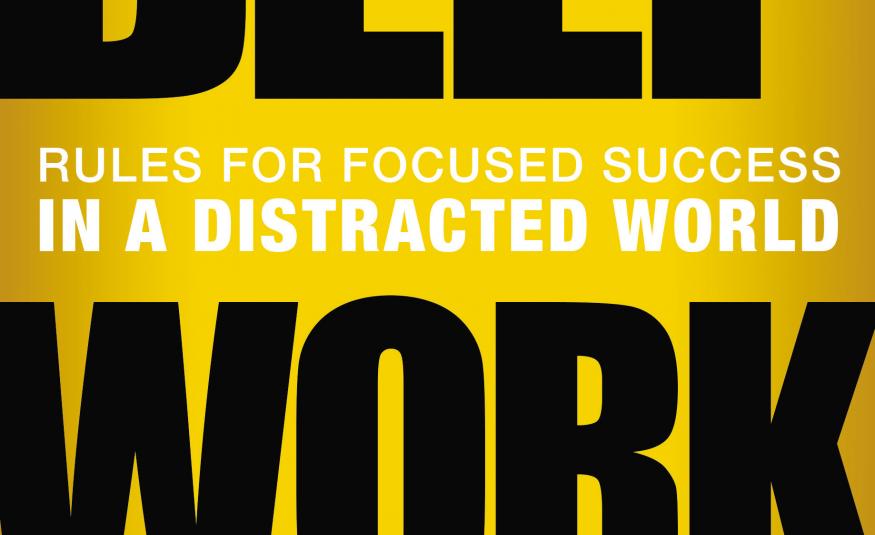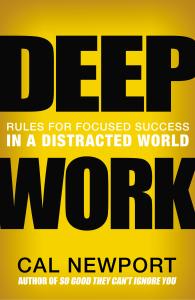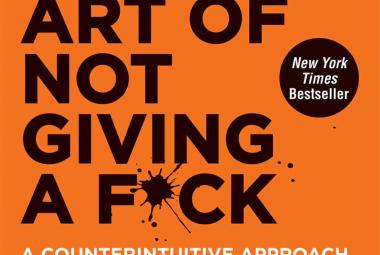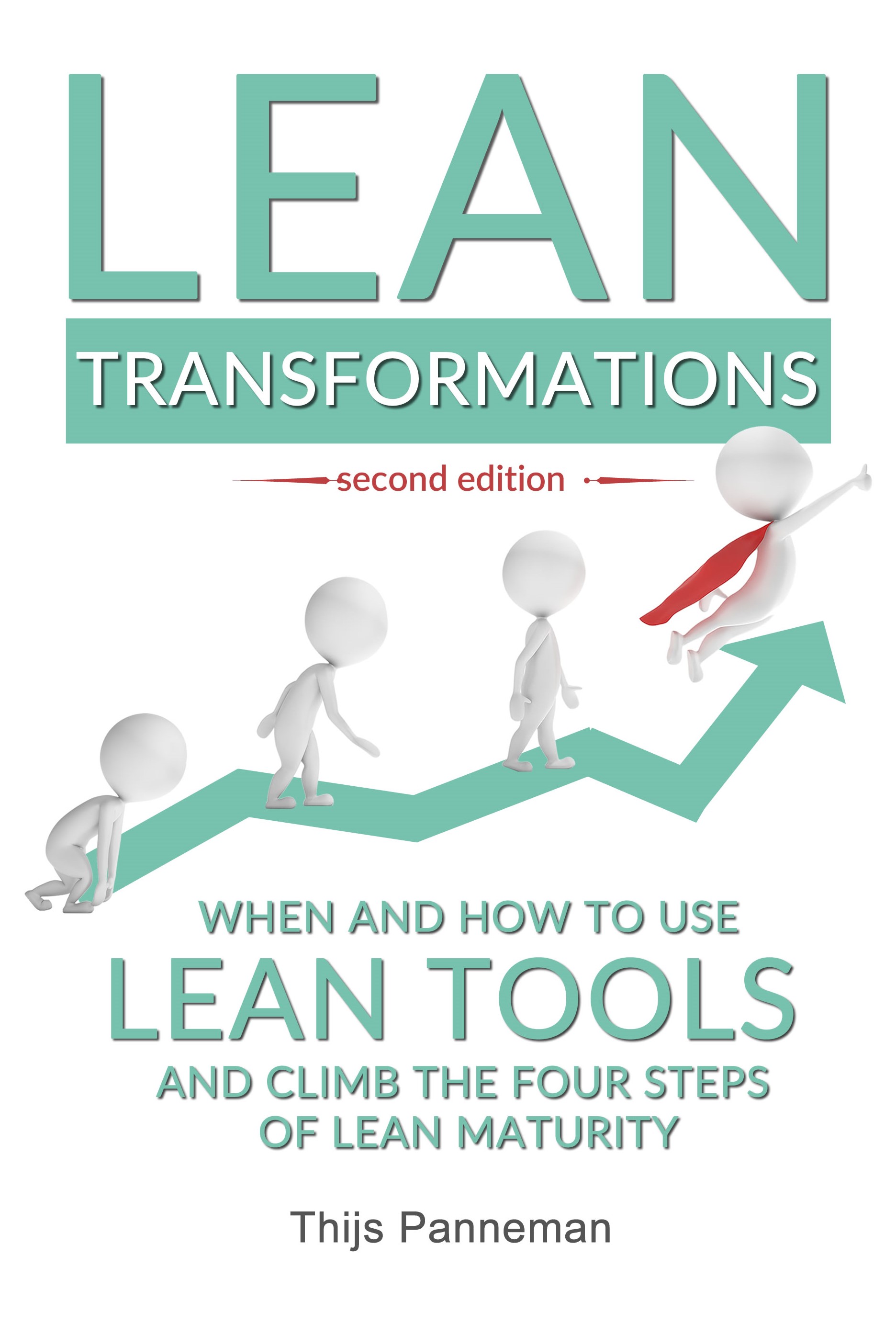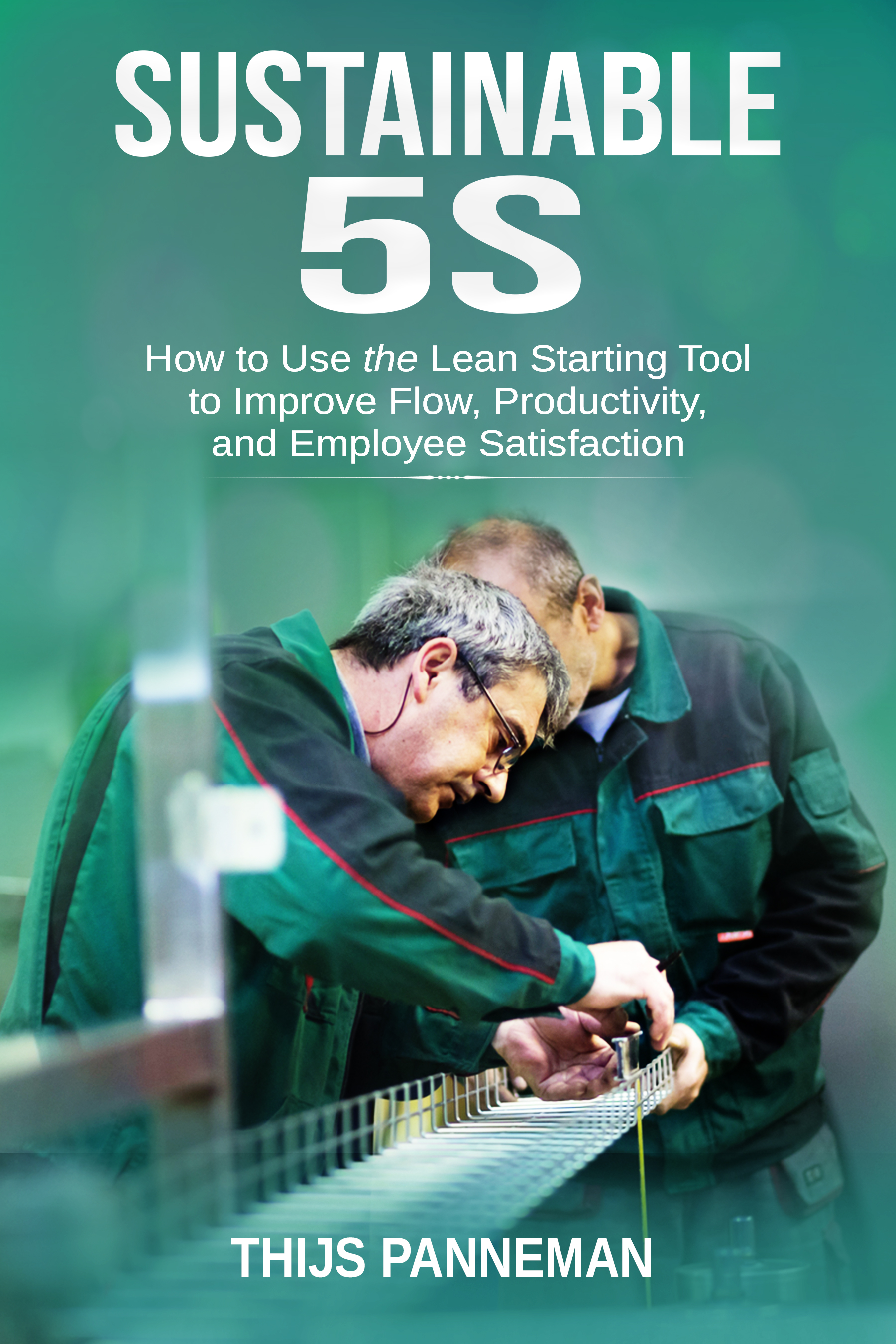In his book, deep work, Cal Newport describes four rules which can help you to stay focused on the things that make you happy and successful in a world of distractions.
This article describes the difference between deep work and shallow work, why it is important to do more deep work, and four rules to help you spend more time on deep work.
The first thing that Newport explains is THE DIFFERENCE BETWEEN DEEP WORK AND SHALLOW WORK.
Deep work are professional activities that are executed in a state of flow (in which you are so focused that you lose track of time and space), which require cognitive capacities (work your brain). This type of work also helps you improve your skills which are difficult for others to copy.
Shallow work on the other hand, is work that doesn´t ask any cognitive effort, and work that can be done without focus. These are the activities that are easy to do but also do not really help you improve a skill, and because they don’t require a lot of cognitive effort, they can easily be done by somebody else.
Understanding this difference is important for personal success and happiness. According to Newport, there are FOUR REASONS WHY FOCUSSING ON DEEP WORK IS IMPORTANT.
The first reason is, that spending too much time on doing shallow work, like scrolling through social media and watching television actually reduce our capacity to focus. Keeping focus requires constant training and the more often we let ourselves be distracted, the more difficult it is for us to keep focus.
The second reason has to do with being successful at work. Two things are important when you care about your career: the skill to learn a new skill fast and the skill of being productive. Deep work helps you excel in both. When we keep training ourselves to stay focused, we will not only be more productive, we can also learn faster than our peers.
Third, deep work influences our sense of happiness. Deep work has everything to do with choosing where we spend our energy, time and focus on. According to Winifred Galagher, our sense of happiness is less dependent on what we have experiences per cee, but more on what we focus on ourselves. By changing our focus, we can influence our perception of happiness.
Fourth, Csikszentmihalyi ads, that happiness has to do with feeling content about ones actions. The better we can stay focused (by doing deep work) the less we will be distracted and the easier we can achieve the state of flow.
Newports first rule therefore states: WORK DEEPLY! There are two important aspects to this rule: planning deep work (1) and planning to relax (2).
The best strategy to do more deep work, is to plan when you want to do deep work. You can do this in different ways: determining a daily fixed time slot, a fixed day of the week, or even a fixed time period within the year which you plan to fully dedicate for reflecting on your personal goals.
The amount of deep work you can do, however, is limited. Your brain needs time to digest all the information that is has taken in during the deep work, which means it is important to plan when you are not doing deep work. Taking these breaks to allow your brain to digest the complex information means that you should not do any other shallow work that also costs you energy, because that will slow down the digestion process. Taking a real break is therefore actually very productive!
Rule number two is called EMBRACE BOREDOM, but Newport writes, that it is better to plan in activites such as memory training or meditation instead of randomly scrolling the internet when you have nothing to do.
It is ok to search for a bit of distraction on the internet between sessions of doing deep work, but set boundaries for yourself. We should focus on shallow work between blocks of deep work and not the other way around.
Rule number three describes GIVING UP SOCIAL MEDIA, which again is a bit provocative. In general, social media is shallow and addictive, which makes it a possible threat to doing deep work. Newport describes four steps that can help you think about the time you spend on social media.
Step 1: list your personal and professional goals. This can be anything from wanting to learn a skill, writing an article, or investing in your friendships.
Step 2: list the most important activities that help you realize the goals defined in step 1. Focus on the top 2 or 3 activities per goal.
Step 3: create an overview of the time you spend on social media and think about how they match your activities mentioned at step 2, and how they help you realize your goals stated in step 1. You can rank the social media using these three categories high, middle or low impact on your goals.
Finally, in step 4: you can think about how much time you really need to add the value to your goals using social media (or other shallow work). Yes, being on Facebook can help you invest in your friendships, but you don’t need to be on there every hour. And yes, watching television can help you relax after a long day´s work, but one hour might be enough.
Rule number 4 is about DRAINING THE SHALLOWS, to generate more time for deep work. Here are my favorite 3 tips that are described in this book, probably because I already live them:
Plan every minute of your day. By thinking ahead about what kind of deep work you want to do on a specific moment, you reduce the risk of automatically starting doing shallow work that fill your time.
Make an overview of your activities and think about whether they are deep work or shallow work. Of course, you should spend more time doing deep work activities in which you can use your full potential, than spending time on the shallow activities where you do not use your potential.
Finally, you should reduce your time spend on E-mail, which is one of my favorite topics (see the article on Email use). When you write an E-mail, think about how you can prevent future Emails from being send back and forth. Don´t write E-mails like ´would you like to go for a coffee sometimes?´ but immediately include location and time proposals.
Deep work helps us think about what kind of activities we do and how they help us achieve our professional success and personal happiness. The four rules Newport describes are a nice start to help you reflect on how your time flies, and change the way you plan your time to increase success and happiness.
Continue to:
Dream Dare Do - B.Tiggelaar (summary)
REFERENCE:
C.Newport. (2016). Deep Work - Rules for Focused Success in a Distracted World. London: Piatkus. (order this book)

